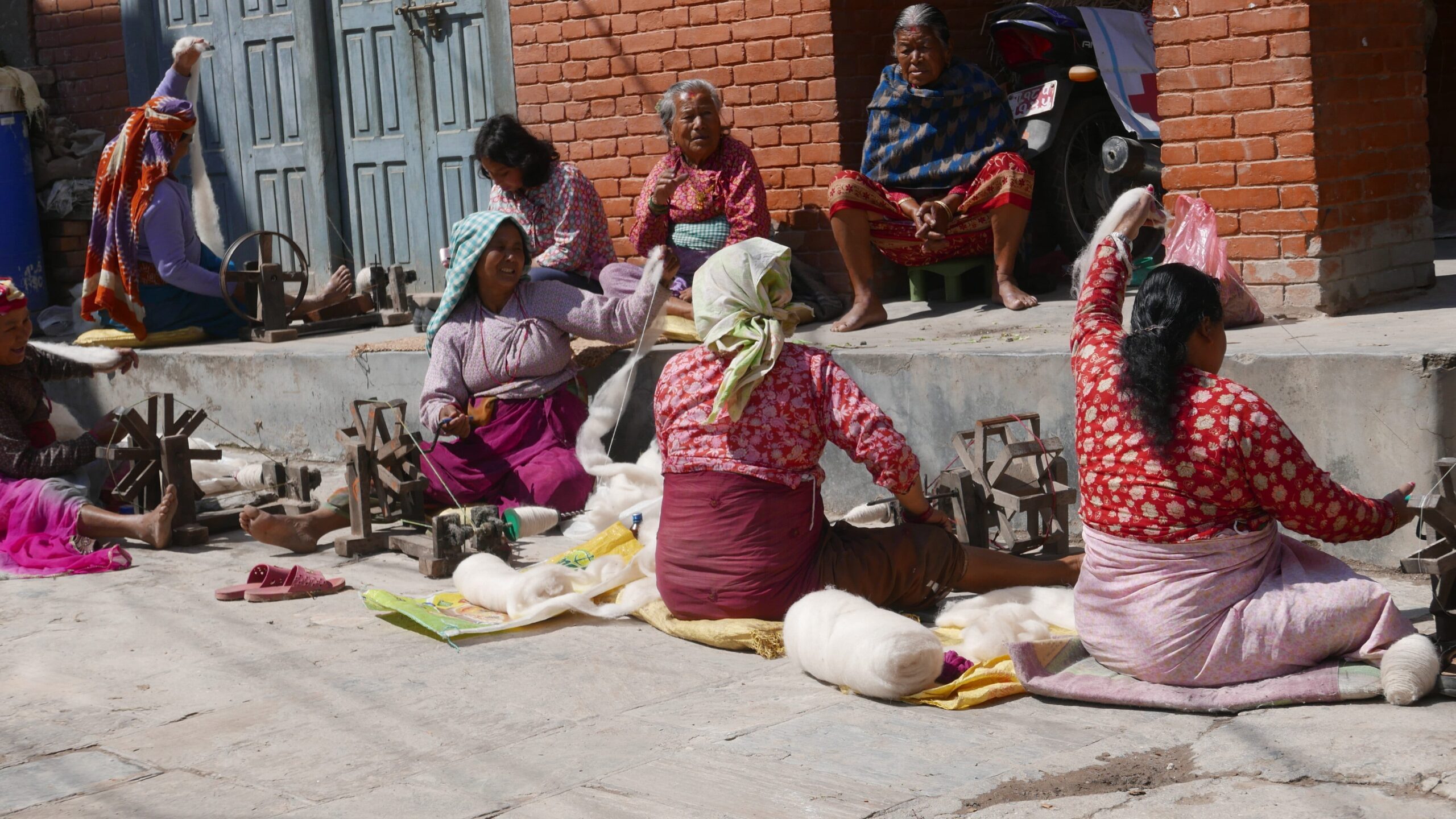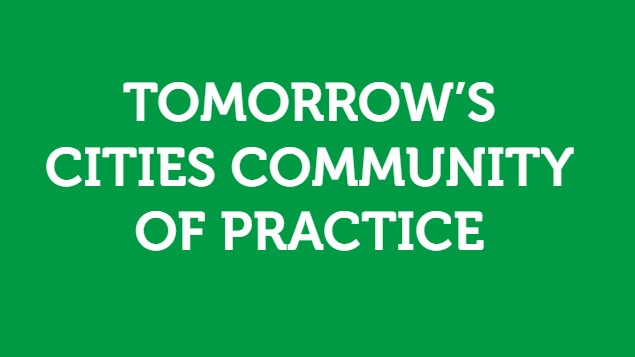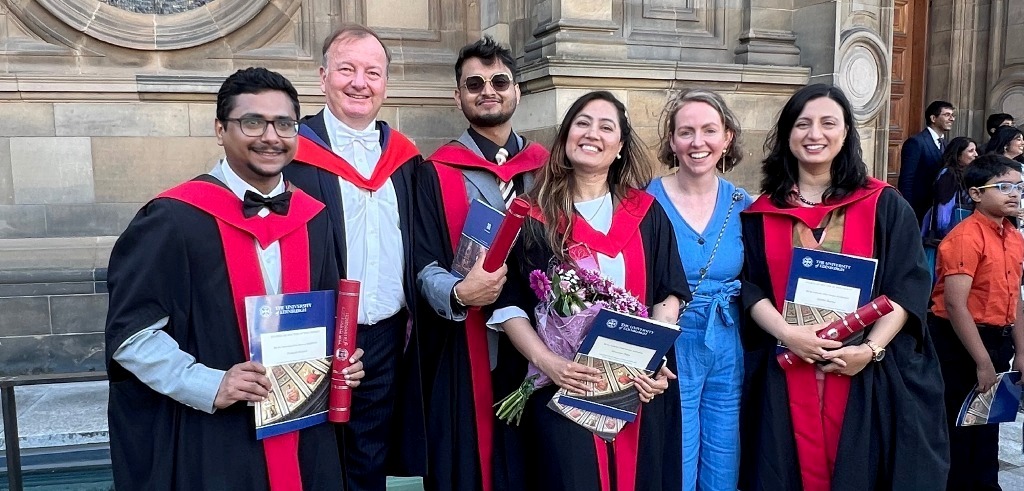
- Close
09/04/2020 | Global
Tomorrow’s Cities and Covid-19: A discussion

Please click here to download this document as a pdf
Covid-19 has changed the context for working and will likely change the local and policy landscape for the Tomorrow’s Cities Hub – it has and will have a major relevance for our collective work and its legacy.
This discussion seeks to open conversation in the Hub. There are no hard steers here, only suggestions and provocations. All will be felt differently by discipline, experienced differently in each city and prioritised differently by our roles in the Hub. There is no specific mapping of Hub city level WPs onto identified opportunities. The core work programme of the Hub at city level has been agreed through the JeS process. The document does not call this into question but does seek to provide a structure for city teams to reflect on any adaptions or revisions to our combined work. It is for city researchers to determine relevance and then agree revised actions with the Hub SMT and Executive.
Below we outline the main aims for Tomorrow’s Cities and map out five entry points for working with Covid-19. These offer initial thoughts on how Covid-19 might be considered in our collective work, as well as opportunities for contributing to policy or practice on Covid-19 within broader processes of equitable resilience building.
Discussion does not seek to cover all the areas of relevance that disaster risk management, crisis management, resilience or transformative action can bring (this is no less important but the focus for another conversation!). The aim here is to identify the specific contribution of Tomorrow’s Cities Hub given focus by our:
Mission: To reduce disaster risk for the poor in tomorrow’s cities
and
Aim: To catalyse a transition from crisis management to multi-hazard risk-informed urban planning and decision-making
Context for Tomorrow’s Cities work
The aim of Tomorrow’s Cities is to reduce risk for the poor in cities of the future.
This is a five year (2019-2024), interdsciplinary programme funded by the UKRI GCRF, it brings together more than 70 interdisciplinary researchers and expertise from across the social and physical sciences including learning. Tomorrow’s cities has strong collaboration form city authorities, organised groups of the urban poor and wider civil society enabling research that is problem facing and solution focussed.
Tomorrow’s Cities contributes to international urban risk reduction and sustainable development policy and does so though grounded work in four cities: Istanbul, Kathmandu, Nairobi and Quito. These cities are all leaders in the promotion of integrated risk reduction into urban development and in the importance of taking a multi-hazards approach to resilience building.
Covid-19, its impacts and the consequences of policy and individual responses require a moment of reflection. Covid-19 has changed urban life and will change the demography of cities and perhaps threaten long-term economic viability. There may be fundamental changes in the lives of the urban poor and priorities for development and risk management going forward. How can the Hub be most relevant to the lives of the urban poor in during and in the aftermath of the global Covid-19 pandemic?
Our work is already planned in detail so this is not a call for reinventing the Hub – we have a strong framework for activity – but there is advantage in reflecting on how far our framework of planned research, capacity strengthening and engagement (as currently mapped out in city JeS submissions and Gantt Charts) will be as useful as possible to enabling future cities that will place the resilience needs of the marginalised and poor at the center of urban planning. If we are not useful in the new framing of development and risk that Covid-19 brings (and are not part of shaping this vision) then we will be less relevant than we might want to be!
This requires thinking across the range of disaster phases, from preparedness through response to relief and reconstruction and resilience building for future development. The Hub focus is on risk reduction and resilience building, less on response. Certainly, we have limited expertise on health crisis management. This said we do have considerable expertise on crisis and disaster management and on resilience building and transformative adaptation, especially as these unfold in urban poor contexts, we also include hazards and risk modellers and remote sensing experts whose skills may be transferable to this novel multihazard context – arguably we bring together one of the largest groups of specialists on this globally.
The Hub has an opportunity to reflect this by showing global leadership. This will include actions that are within the funded remit of the Hub, additional research, charitable activity or consultancy that can bring value through formal association, and additional work individuals undertake that goes far beyond the Hub remit but that the Hub can magnify through its network and communication channels.
The discussion below begins to reflect on this challenge and offers some ways in which lessons from multihazard risk research might inform Covid-19 and how Covid-19 responses might align with the aims and activities of the Hub.
The big picture – leveraging Covid-19 to challenge business as usual
The urban poor are multiple and diverse. As a broad category however, the urban poor are likely to be vilified and seen as the primary driver of risk in cities, or at best left behind in the aftermath of Covid-19. The Sendai Framework and SDGs ask us to build back better in ways that leave no one behind – there is an opportunity here to enable this process.
True, the urban poor might be least able to self-isolate, have high levels of underlying health conditions and will likely live in the densest conditions promoting disease contagion. But these conditions of risk reflect long-standing structural economic conditions (and the underlying politics and cultural assumptions) in which the poor are forced to live. We cannot forget that Covid-19 has been transmitted around the world by the flying classes – there are few urban slum dwellers that will have brought Covid-19 to their countries. There is a deep debt owed to the urban poor from the populations that benefit most from global connectivity. This should not be forgotten. Can we work with the media to challenge these narratives? What should we do to build on the scrutiny of development that Covid-19 brings to highlight risk root causes for the urban poor and keep these in the focus of policy makers and the media?
Evidence from past disasters and crises shows very few cases where post-disaster conditions are more equitable, inclusive or sustainable than before. Can we offer insights for those arguing for the progressive opportunity that arises from Covid-19 for resolving the underlying conditions that generate risk – including but reaching beyond Covid-19 into multihazard risk drivers? A key issue here will be recognising Covid-19 as a window of opportunity for change (in amongst the pressures of crisis management among actors at different scales in the city), and then opening spaces for voices/supporting existing coalitions to propose progressive changes. What should be put in place within research programmes, e.g. what public networks or discourses could be promoted through Tomorrow’s Cities to enable progressive resilience building and make back-sliding, scapegoating of the poor or the imposition of restrictive social policy more difficult?
The Sendai Framework extends the remit of risk management from disasters associated with natural and technological hazards to include health crisis. This brings with it a responsibility for communicating the lessons from disaster management to the Covid-19 response and recovery into development. Key lessons include:
- Crisis phases overlap: response, recovery, risk reduction and preparedness may unfold in the same space for different population groups. Interactions are important to understand.
- Emergency response is a time for initiating recovery, in particular through psychological support, rapid livelihood support and open communication between local actors and those managing response and recovery.
- The root causes of events lie in development and are an important focus in recovery and resilience building to reduce future risk in ways that can enhance inclusive and sustainable development.
- Multiple hazards and risks remain and may be affected by the impact and management response to Covid-19 – making societies more or less exposed or vulnerable to future risk – it is important to have a multi-hazard and multi-risk view in learning from an event and not only focussing on reducing risk to the specific hazard driver (pandemic risk).
Why is Covid-19 important for Tomorrow’s Cities?
Covid-19 changes the context for our work – policy and local actors are reorganising to prioritise the health crisis. This will have many forms and will be dynamic. Many policy and local actors will have even less time to spend on research that does not feed tangibly into their day-to-day concerns. Others will be exhausted and have less time to accommodate research that is not oriented obviously to impact. There a realistic prospect that key decision makers will be lost or incapacitated by Covid-19 in the long or short term; what happens in this vacuum? Inability to work face-to-face with researchers and respondents also requires us to think creatively about methods. These broad contextual and logistical issues are important to hold when considering ongoing research strategy.
There are perhaps five entry points where the Hub should have a perspective on Covid-19:
- The disaster cycle. A joined-up engagement with risk-reduction, risk-management, response, reconstruction and recovery into development. That these stages unfold with different temporalities in different places and require pre- and interconnected planning. Should we be planning for the consequences of the social, psychological and economic impacts of Covid-19 on vulnerability to future natural hazards and on the future planning of cities in the response phase, as well as working on current vulnerabilities and the political voice for the marginalised and vulnerable?
- Multi-hazard risk and its management. There is a reasonable likelihood that natural hazard events will overlap with Covid -19. This in some ways inverts our thinking on cascading risks (staring from a health hazard to generate new vulnerabilities to a natural hazard) but is no less relevant. This will include the ways in which historical losses, fear of impact and consequences of risk management from one event or pressure shape vulnerability (physical and social) in the face of emergent, coincident or future pressures. How might moving from single hazard based risk management to seeing risk as an outcome of dynamic vulnerability with multiple drivers of endangerment change what information is important, how it is collected, evaluated and communicated?
- Pro-poor local resilience. How knowledge of social vulnerability (including psychological, social networks and behaviour, demographics) helps understanding of the ways in which vulnerability and response to Covid-19 unfolds, including disaggregating the urban poor for example by gender, age, residence. Will migrant groups or the homeless respond differently? Can existing risk or resilience mapping, monitoring and assessment methods incorporate Covid-19 and its consequences, including in participatory techniques for strengthening local knowledge, voice and witness of the urban poor? Is it possible and appropriate to refocus these methods for use in community/city management of Covid-19?
- Policy transitions. Is Covid-19 relevant to our understanding of the ways in which cities and local organisations/cultures respond to unprecedented crisis? What can be learnt for our analysis of the specificity of policy transitions in each city from Covid-19 – including information flows, political/policy/personal priorities and assumptions that determine the direction and speed of policy transition? Where does influential knowledge come from, who creates it, who makes decisions? Who resists and promotes change – for what reasons? How will Covid-19 map onto other risk narrative positions, or create new ones? Where is science positioned in the crisis and beyond – is science used to shield political decisions? The novelty of COVID19 is significant here. There are well established positions (and actor/knowledge coalitions) around the biophysical hazards; will COVID19 open the space to challenge conventional thinking, or close down space as science and expertise is given prominence in decision making? Crucially, how can we recognise, capitalise on or challenge these dynamics? Covid-19 has already delivered a transition in public policy and human behaviour, are there lessons to learn for transitions in risk management more generally, are there momentums to build on for the Hub’s aimed at transition?
- Crisis politics. Crisis is an opportunity for some, who? Can there be opening for socially progressive movements arising from Covid-19 and its economic consequences – connected to our interest in those made vulnerable to multi-hazards? What will the legacy of Covid-19 be for civil rights, freedom of movement, political transparency in this context? How do local practices lead to or legitimate political change (i.e. new neighbourliness? Blaming the urban poor?)? What does post-Covid-19 tell us about the tendencies in specific political systems for new policy or organisation to break from or be dependent upon inherited forms? What are the determinants of the opening of progressive political narratives and practical action locally and at city and national scale?
Implications and Next Steps
The complex emergency generated by C19 will have a wide range of impacts. These will be felt unequally. Local and individual impacts will be shaped by degree of access to public health and social support mechanisms (state, private and communal), as the crisis worsens food security, economic livelihoods and potentially even social cohesion will be tested. For the urban poor already living in a chronic state of health and economic crisis C19 will likely be felt hard. There is a danger that in recovery and into development the urban poor in their diversity are presented as a cause of local contagion. The Hub has a key role to play in offering an alternative narrative based on evidence – from the historical patterns of development and exclusions; from current observations of living conditions and from the expertise the Hub can mobilise around future resilience and its base in generic public goods: access to health care, education, inclusive decision-making (including for women, the aged and youth). These are not new observations, any post-crisis context has to face the onslaught of dominant capital and political interest seeking to make the city anew to their benefit. But Covid-19 makes this a common, even global struggle for the first time. The Hub and our research have something to say about this.
City research is already in place and indeed well placed already to offer insight and the relationships being built can be a source of immediate solidarity with those most at risk or facing hard management decisions. City leadership is key in determining the right balance of engagement with Covid-19 building from (and probably adding to) our planned work emphasising disaster risk reduction and resilience building across the disaster; multihazard interactions and dynamic vulnerability; pro-poor local resilience; policy transitions and crisis politics.



